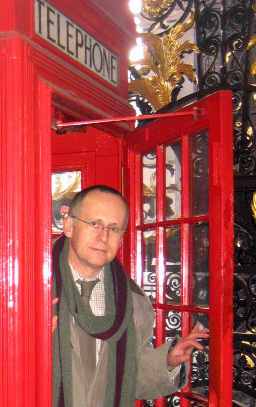
Geoscientist 22.04 May 2012
If any scientific tribe can be expected to understand the inevitability of change, it must surely be geologists. After all, we have seen it all before, and worse. Yet, increasing age can still cause any of us to rebel - even against changes we know are not only inevitable but necessary and desirable.
How many readers, for example, secretly ask themselves the question that dare not speak its name – namely, ‘how much longer they are going to have to put up with climatology masquerading’ (go on, admit it, that’s the word you mean) ‘as geology?’
Nature Geoscience and
Nature Climate Change have become barely distinguishable. Why are we to be expected to care about prediction when, as any fule kno, geology’s essential charm lies in the past? And when can we go back to what really interests us orthogeologists – namely, finding out what stuff is where, what is the same age as what, which way up it is, how it got there, and whether it’s worth digging it up?
Recent anxieties expressed in these pages over the future of micropalaeontology - continued this week in
Soapbox - seem to crystallise just how out-of-joint the world has become when we find ourselves in this recidivist mood. Palynology, for example, used to be - and possibly still is, an area where industrial interest arguably outweighed the scientific. It may not have been that rewarding intellectually, splashing HF about and classifying microscopic flecks. But, by all that’s mucky and trilete, there was brass to be had in it. Was not such useful research exactly the sort of industrial grist that universities in the 1980s were expected to produce? What happened?
Well, while you put some effort into snapping out of it, I hope our two features this week amply prove that modern geoscience that is still recognisable as geology is yet pursued with pleasure and profit by both academe and industry. And anyone prone to
Daily Mail moments about the state of Earth science can take Hertfordshire. Here, the home county of the puddingstone that features so prominently in our case for the deep-time perspective in climate change, has received a scientifically up-to-date but spiritually old-fashioned treatment,
reviewed in this issue and featured in an Online Special by its Editor, John Catt. This fine book is a worthy successor to the county monographs of
Robert Plot and is today a pleasing antidote to be taken whenever you are tempted to say
scrotum humanum to the modern, future-obsessed world.
TED NIELD
Editor